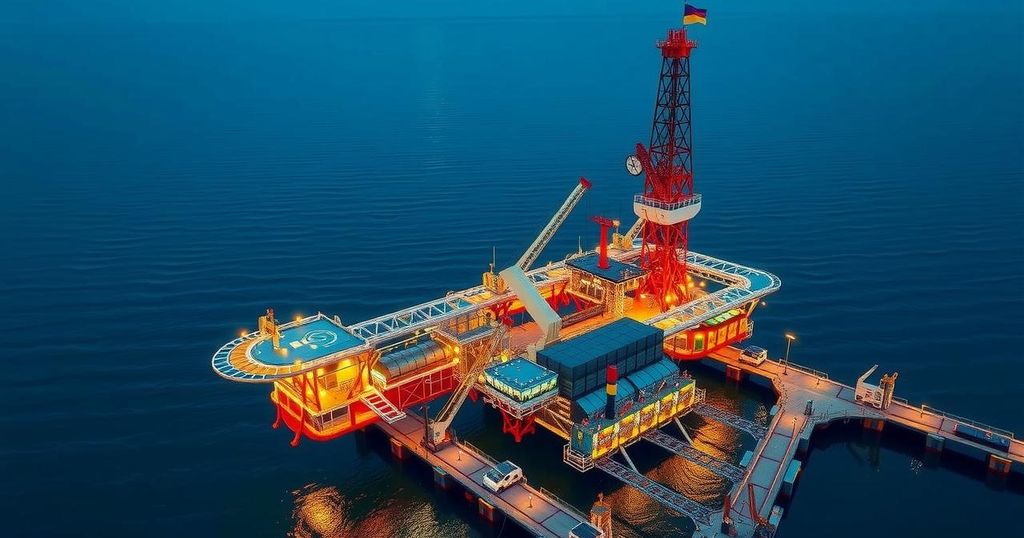Azerbaijan’s President Defends Fossil Fuels as a ‘Gift from God’ at COP29
During COP29 in Baku, Azerbaijan, President Ilham Aliyev called oil and gas a “gift from God” while defending the country’s fossil fuel exports against Western criticism. He accused critics of hypocrisy for condemning Azerbaijan’s dependence on fossil fuels while purchasing its resources. UN Secretary-General Antonio Guterres highlighted the absurdity of further reliance on fossil fuels amid global warming concerns, emphasizing the need for collective action.
At the recent COP29 climate summit held in Baku, Azerbaijan, President Ilham Aliyev declared oil and gas to be a “gift from God.” This proclamation occurred during his opening remarks at the conference, amidst criticism of Azerbaijan’s heavy reliance on fossil fuels. Aliyev criticized Western nations for hypocritically denouncing his country’s fossil fuel dependence while simultaneously purchasing its oil and gas, asserting that Azerbaijan has endured a campaign of slander from Western media and environmental groups. In defending his country’s energy exports, Aliyev claimed that vast quantities of oil and gas, representing approximately 90% of Azerbaijan’s exports, should not be condemned. He remarked, “No country should be blamed for bringing natural resources to the market, because the market needs them.” His statements were directed against critics and independent organizations that, he argued, spread misinformation about Azerbaijan’s energy sector. The President further contended that Western nations continue to purchase Azerbaijani gas, particularly in light of Europe’s efforts to mitigate its dependence on Russian energy supplies. This points to a perceived hypocrisy in the criticism directed at Azerbaijan. During the summit, UN Secretary-General Antonio Guterres stressed the absurdity of intensifying fossil fuel reliance in the fight against climate change, calling for unified action against global warming. Guterres’ remarks introduced a stark contrast to Aliyev’s assertions that natural resources ought to be valued and utilized responsibly, emphasizing the urgency of addressing climate issues collectively. Overall, the summit illustrates the complex interrelations between fossil fuel production, global energy demands, and climate change negotiations.
The context surrounding President Aliyev’s remarks stems from Azerbaijan’s significant role in the oil and gas industry. As a major exporter, the country’s economy heavily relies on fossil fuels, which account for the majority of its exports. The COP29 summit, aimed at addressing global climate issues, has faced criticism regarding the participation of nations that depend on such resources. Calls for boycotts have emerged due to the environmental impacts associated with fossil fuel consumption, leading to tensions between developing economies, which may prioritize energy exports, and Western countries advocating for climate action.
In conclusion, President Ilham Aliyev’s statements during the COP29 summit reflect Azerbaijan’s steadfast defense of its fossil fuel industry amidst international criticism. His assertion that oil and gas should be considered valuable resources highlights the ongoing tension between energy production and climate advocacy. As discussions continue at the summit, the challenge remains for nations to reconcile their energy needs with the global imperative to combat climate change, especially in light of disparate economic dependencies.
Original Source: www.aljazeera.com




Post Comment